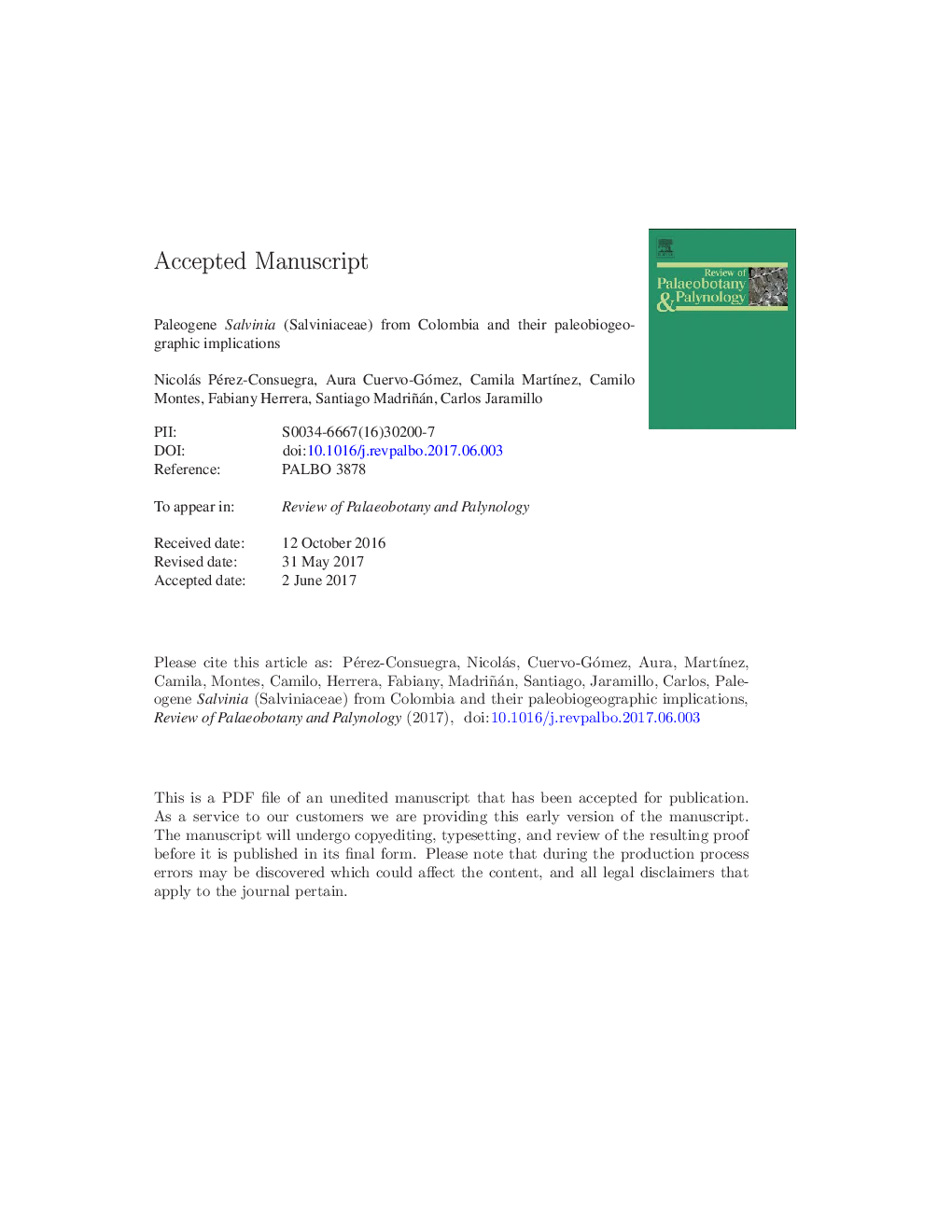| Article ID | Journal | Published Year | Pages | File Type |
|---|---|---|---|---|
| 5788313 | Review of Palaeobotany and Palynology | 2017 | 84 Pages |
Abstract
Salvinia is a pantropical aquatic fern that has the highest species diversity in tropical America. Its evolutionary history and biogeography is still poorly understood. Contrasting its almost modern pantropical distribution, fossils of Salvinia have been found worldwide, including North America, Europe and Asia. Here, we describe fossils of Salvinia from four Paleogene localities of Colombia. Based on comparative morphological analyses of sterile organs, we describe two new species: Salvinia magdalenensis sp. nov. and Salvinia bogotensis sp. nov and assign the fossils from the other two localities to Salvinia sp. Available fossil data, together with these new records indicate that Salvinia was distributed in tropical latitudes as well as in temperate latitudes of the Northern Hemisphere throughout most of the Cenozoic. Its modern pantropical distribution could be the result of Pleistocene extinction of Salvinia in temperate regions due to global cooling climate trend.
Related Topics
Physical Sciences and Engineering
Earth and Planetary Sciences
Palaeontology
Authors
Nicolás Pérez-Consuegra, Aura Cuervo-Gómez, Camila MartÃnez, Camilo Montes, Fabiany Herrera, Santiago Madriñán, Carlos Jaramillo,
